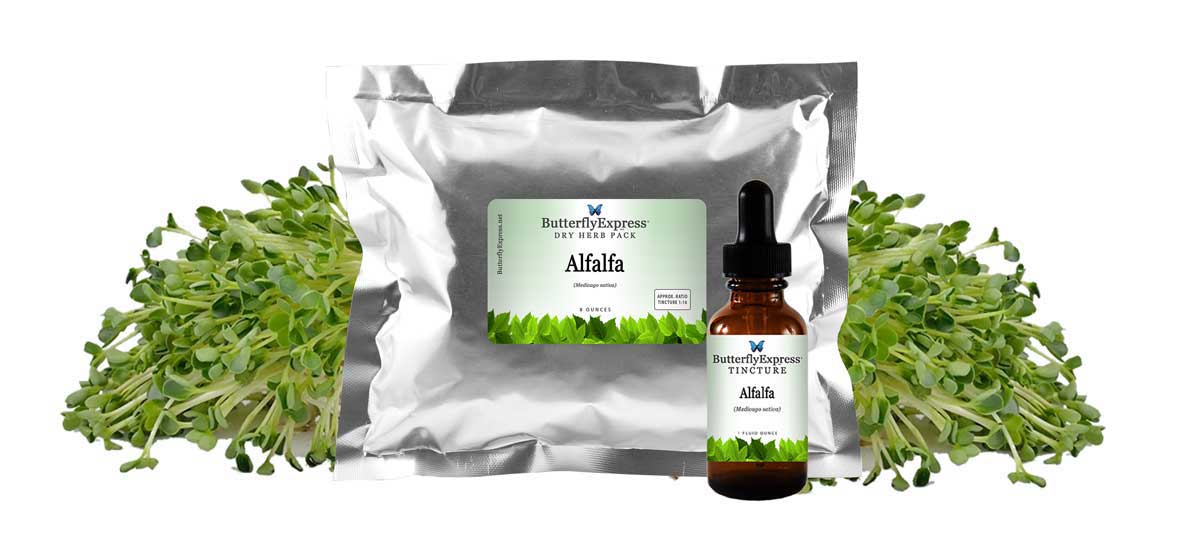|
Alfalfa Medicago sativa PART USED: Leaf PROPERTIES: Tonic, Diuretic, Alterative/Adaptogenic, Antipyretic SYSTEMS AFFECTED: Digestive, Muscular, Endocrine/Glandular (adrenals, pineal, pituitary, pancreas, thyroid), Blood (nutritive) POSSIBLE USES: anemia, ADHD, allergies, asthma, fibrocystic breast disease, fatigue, hormone balance, infertility, rebuilding after miscarriage, nausea, osteoporosis, restless leg syndrome, improving stamina, toxemia of pregnancy, and as a follow-up remedy after sulfa drugs or antibiotics have been used INGREDIENT IN: AC, AP, CART, IBL, KNA, MIN, PT, TY Alfalfa has been in use as a “miracle herb” for centuries; the Arabs call it the “Father of Herbs.” Alfalfa is thought to contain the widest variety of vitamins and minerals of any other food on earth, and the rich supply of chlorophyll makes it perfectly balanced for absorption by the body. Among the nutrients that Alfalfa contains are vitamin A, most of those very important B vitamins including folic acid, vitamins C, D, E, F, and K. Important minerals found in Alfalfa include iron, calcium, magnesium, manganese, phosphorus, sulfur, chlorine, selenium, sodium, potassium, silicon, zinc, and many of the trace elements. There have been studies that show that the specific nutrients in Alfalfa “bind” chromium and make it more readily available to cells. Chromium is necessary for the metabolism of fats and carbohydrates, activates several enzymes, improves glucose tolerance and blood sugar levels, and promotes lean muscle growth. Alfalfa contains some wonderful proteins—a rather rare thing in the herbal world—and eight of the amino acids that are essential to the body. Whatever Alfalfa lacks can be made up for by using it with Kelp and Nettles—the KNA formula, which is my favorite supplement. Perhaps Alfalfa should be considered more of a “food” than a medicinal herb and, perhaps, if Alfalfa were taken regularly there would be less need for medicine. ©Copyright Butterfly Expressions 2020, 2024 |

Purchase Alfalfa Products Here |

- Butterfly Expressions LLC
- Empowering Yourself
- OFFICIAL SITE